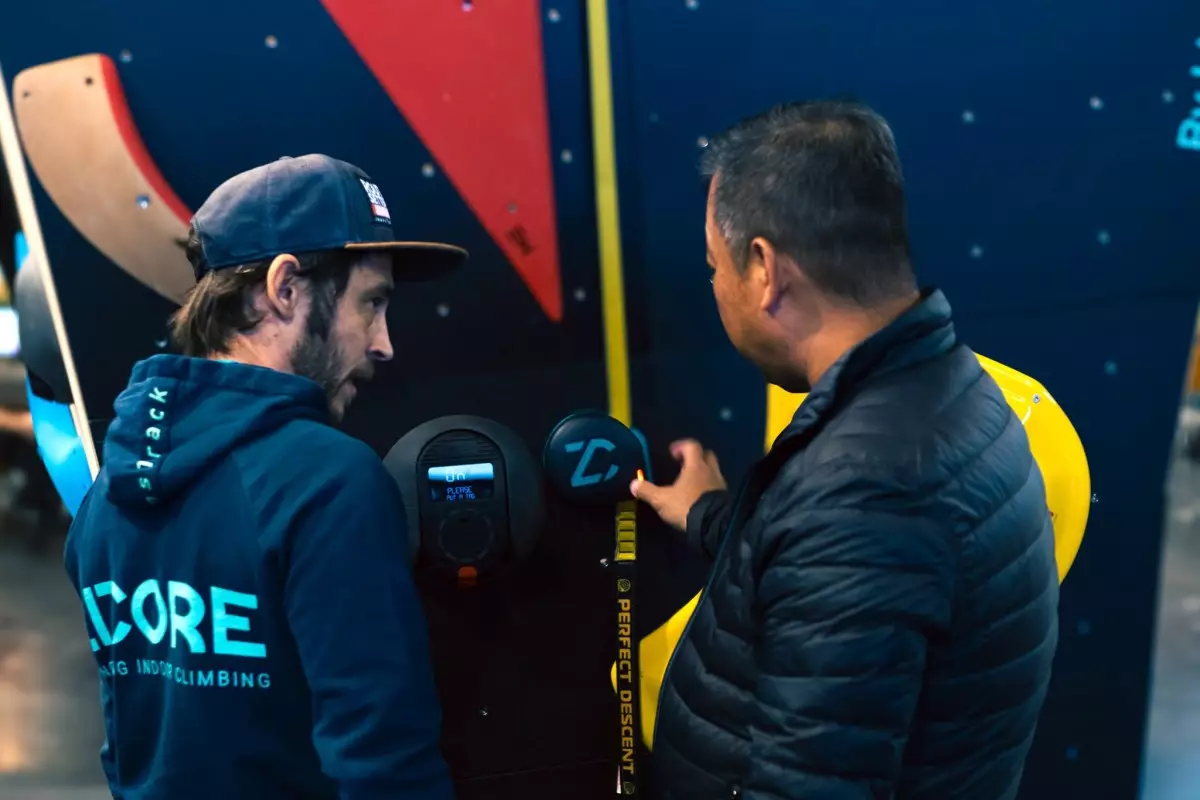Indoor climbing continues to grow in popularity, but the challenges associated with tracking progress and ensuring safety remain significant hurdles for gyms and climbers alike. Lizcore, a Spanish startup, is leveraging cutting-edge technology to transform both the climbing experience and its safety protocols. This article will delve into the innovative solutions that Lizcore is proposing and analyze the implications for the indoor climbing community.
Founded by climbing enthusiast Edgar Casanovas Lorente and tech entrepreneur Marçal Juan, Lizcore emerged from a passion for climbing and a desire to enhance how climbers engage with their sport. At a recent Mobile World Congress (MWC), the duo introduced their innovative hardware designed to gamify indoor climbing, similar to what has already been achieved in other sports through wearables and activity tracking. The centerpiece of their solution is a lightweight NFC bracelet that climbers can wear during their sessions. By eliminating bulky devices like smartphones, this approach prioritizes ease of movement, allowing climbers to fully immerse themselves in their ascents.
The system utilizes smart base units and top-out holds, collecting valuable route statistics that climbers can review through a dedicated app. This integration not only enhances the climbing experience but also encourages a friendly level of competition among climbers, appealing to both newcomers and seasoned veterans alike.
Lizcore’s journey hasn’t just been fueled by innovation; they’ve also made strides in securing funding for their vision. They recently completed a pre-seed funding round, attracting roughly €600,000, equivalent to about $630,000. Investors include Startup Wise Guys and several angel backers, along with substantial support from government sources, such as an interest-free loan and grants. This capital injection will enable the startup to commercialize its hardware and enhance its product offerings.
The significance of this funding isn’t merely financial; it signifies a strong belief within the investor community regarding the potential market for gamified climbing experiences. Lizcore also signed its first commercial client: Drac de Pedra, a Catalan climbing gym, which plans to incorporate Lizcore’s technology with a focus on integrating 30 climbing routes. This partnership will serve as a proving ground for further hardware development and proof of concept.
As Lizcore’s innovation unfolds, the focus on safety remains paramount. Frequent and tragic accidents related to autobelays highlight the need for improved safety protocols. Autobelays allow solo climbers to ascend without a partner, but they come with inherent risks, including the possibility of neglecting to clip into the safety apparatus. Such oversights can lead to catastrophic falls and even fatalities.
Recognizing these hazards, Lizcore is developing an autobelay safety device alongside its tracking system. This new safety mechanism will require climbers to hold digital credentials on their NFC bracelets, restricting access to the autobelay systems to those who have proven they understand the safety protocols. In essence, if a climber does not possess the appropriate digital credential, the autobelay system will not be activated.
Beyond credential verification, Lizcore is incorporating sophisticated monitoring technologies into their safety framework. Cameras mounted in conjunction with the base units will leverage artificial intelligence to assess climbers’ techniques in real-time. For instance, one camera will capture footage of climbers at the start of their routes to verify they are correctly clipped in. A second camera, aimed at the climbing surface, will monitor the climbers as they ascend, raising alarms if they are detected without proper safety equipment.
Casanovas and Juan aim to strike a balance between implementing robust safety measures and maintaining the climbing experience’s enjoyment. Their aspiration is not merely to reach a theoretical point of “perfect safety” but to instead create a multi-layered security system that dynamically adapts to climbers’ behaviors.
The impact of Lizcore’s innovations extends beyond mere statistics; they represent a pivotal shift in the indoor climbing landscape. As the industry grapples with growing participation rates and safety concerns, effective solutions such as Lizcore’s can lead to a more enjoyable and secure climbing environment. By seamlessly merging gamification with safety, Lizcore stands at the forefront of a vital evolution in climbing technology.
The journey from concept to commercialization is fraught with challenges, particularly in the hardware realm. Yet, the dedication from Lizcore’s expanding team of nine suggests an unwavering commitment to enhancing the sport’s future. With the climbing community’s safety and enjoyment at the forefront, Lizcore is poised to become a game-changer, ushering in an era where technology complements the thrill of climbing, ensuring that both seasoned and novice climbers can pursue the sport with confidence.

